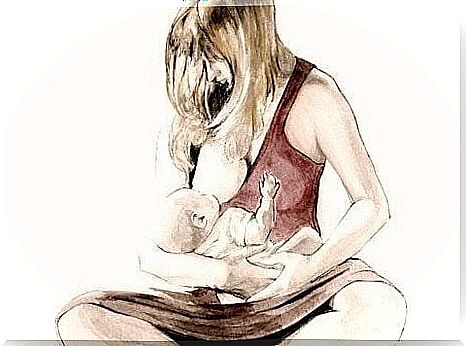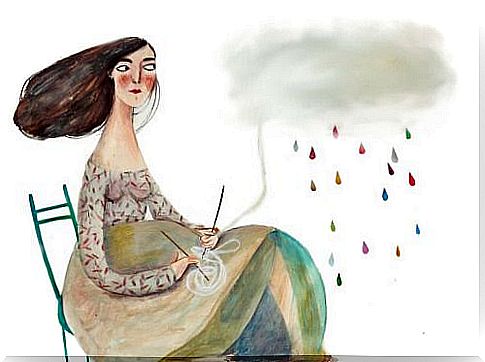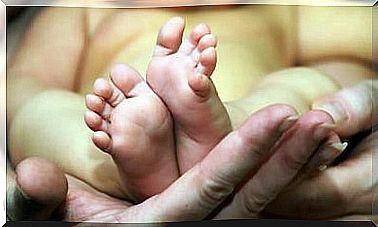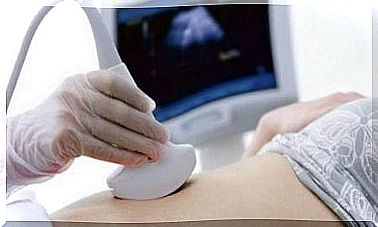No, The Postpartum Phase Is Not Always Rosy

The postpartum period is not always rosy. Mothers don’t have much energy left at this stage. For many mothers it is full of fear. The lack of sleep is exhausting and the baby’s needs seem infinite.
If you’ve had a difficult, tough, and painful postpartum period , many people have probably told you to take it easy, not give up, and enjoy the beautiful moments of motherhood.
These phrases certainly point to the relatives’ little concern that you may lapse into postpartum depression.
However, not everyone is aware that there are different degrees and nuances before postpartum depression can be spoken of. A lesser known condition is the “baby blues”.
Today we cover this topic here at “I Am Mother”.
The postpartum phase is not always rosy, it is “baby blue”

If a mother feels something when she comes home for the first time after giving birth, it is “the obligation to feel happy, to have 100% of her strength and at the same time to know that the best part of her life is ahead” .
Without a doubt, she is living through this time, or rather “will live it”. However, it usually takes a few months for your body to adjust and for your hormones to level off again. When all of the fears, pains, insecurities and worries are put into an overall context, she will feel comfortable with her role as a mother.
These are undisputed times when you need the help of the people around you more than ever. Your partner shouldn’t hesitate to be the other indispensable half that complements you in your daily chores. Additionally, it is a time when help and advice from grandmothers and other experienced mothers can be helpful.
You’re a little sad and that’s normal because you have baby blues
The psychological phenomenon of “baby blues” is also known as postpartum depression. This suggestive name contains a very common reality experienced by new mothers that is caused by the following:
- Hormonal changes in the body
- New commitments
- Physical exhaustion after childbirth, from which a mother cannot recover so quickly due to the new obligations.
- Changes in Personality: We become mothers, whether first mothers or seasoned mothers. Much more responsibility and challenges have to be taken on in this area.
It should be noted that the “baby blues” is not postpartum depression. It’s kind of like being immersed in a sea of inexplicable sadness for 2 weeks. A little over 10 or 15 days in which we feel surrounded by a fog that makes us irritable, tearful and anxious.
However, it is more of a punctual event. After two weeks the “baby blues” with its sad melody disappears. It gives way to more intense and exciting music that fills us with new nuances and motivation (even though we are still tired).
How is baby blues different from postpartum depression?

Postpartum Depression
- Postpartum depression is a serious mental disorder.
- It can start unexpectedly in the first year after birth.
- It usually lasts 10 to 15 months.
- The mother cannot take care of herself or the baby and feels completely overwhelmed.
- About 10% of women suffer from postpartum depression.
- Sometimes it can be caused by the couple’s emotional problems. It can also be caused by unemployment or even feeling that you do not feel adequately supported to meet your new obligations.
- Postpartum depression can be overcome with the help of medication and therapy.
The baby blues
- It occurs right after birth.
- Baby blues has feelings of sadness and irritability that last for about 15 days or a little longer.
- No medical or psychological support is required. In the case of “baby blues” , talking to a partner, parent, or friend is beneficial. The passing cloud of sadness disappears on its own after a short time.
In conclusion, feeling emotionally depressed can be normal for the postpartum period, as you’ve read in this article. Sometimes society puts unnecessary pressure on new mothers with its notion that every woman who has just given birth must be incredibly happy and full of energy.
What all mothers need is the support of those around them, as well as time and rest.









